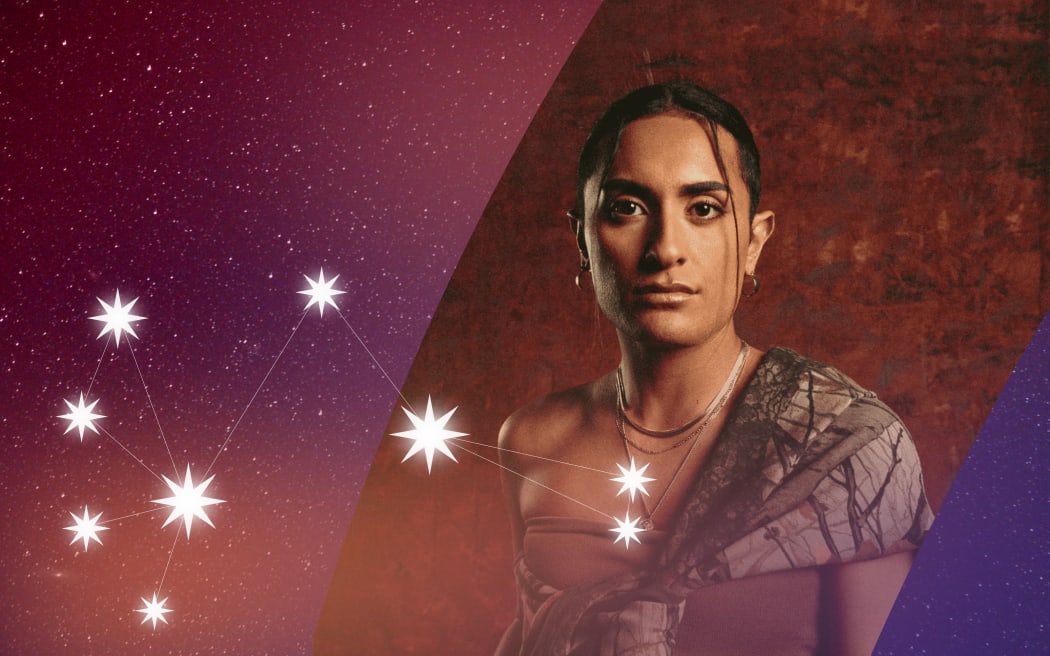As a child, Aniwa Whaiapu Koloamatangi was a born performer. As an adult, he says strong support from his whānau has enabled him to carve out a niche as a proud takatāpui Māori actor and TV presenter.
Koloamatangi, 22, says he’s lucky to always have the encouragement to live his life as a young proud takatāpui Māori from a very young age. He wore dresses to kohanga and his mother even bought him a little purse. He acknowledges that many young queer youths may not have that same support, especially in Māori and Pasifika homes.
“My parents allowed me to just be me and supported how I wanted to live my life. The main thing for them was to make sure that their children felt loved and supported,” he says.
“It’s not always easy for our takatāpui youth, especially for our Māori and Pasifika teenagers. It’s amazing to know that there are parents out there who can support their children.”
He says support from his grandmother, Rose Whaiapu, and the rest of his whānau has enabled him to be his true authentic self.
“They made me who I am today. Without their support, I would not be able to walk freely in life and choose the pathways that I have chosen.”
Koloamatangi, who has a Māori mother and Tongan father, grew up in the Auckland suburb of Manurewa. He was educated at kohanga reo and kura kaupapa schools and has been immersed in Māori culture his entire life. He says being both Māori and Pasifika gave him a strong sense of identity.
“I have all of this brown magic going on within me. I have the best of both worlds.”
He shone on the kapa haka stage and has travelled around the world with his school to perform. He says kapa haka is how he fell in love with performance.
“I was often the loudest in the room. My mum would always say that I was a performer, an attention seeker,” he says.
“I’d always perform for my whānau, putting on little shows for them. I never saw it as a career path. It was a great creative outlet for me.”
His break into acting came while he was still at Ngā o Puna Waiōrea, the total immersion unit at Western Springs College in Auckland. He received a random message from the casting director of Ahikāroa, a popular Whakaata Māori drama, and was asked to audition for the role of Kid, a takatāpui teenager living in Auckland.
“At the time, I was wondering what I was going to do when I left school and was thinking about applying to university. Then I got a call from the casting director. Acting was never on the books for me, but I thought I’d give it a go.”
Koloamatangi was cast in the role and has appeared on the popular show, which tackles serious topics of young Māori living in Auckland, for four seasons. Filming season five starts soon.
“I was grateful that the producers were open and supportive of hiring a green actor like me,” he says.
“I get a platform to tell these stories that are relatable to my generation.”
He says he can relate to the character of Kid, a young Māori takatāpui trying to navigate his way in the big city.
“The show really reflects a lot of our experiences as urban Māori. The stories that we portray really touch on our experiences,” he says.
Ahikāroa producer Nicola Smith also picked Koloamatangi to present Queer and Here, a documentary series focusing on Aotearoa's LGBTQI+ community.
“It was an honour for me to do this mahi. I went in not knowing much about our LGBTQI+ community. I got to learn so much more about our history and got to work alongside some pioneers.
“When I was little there was nothing like this on TV. It allowed us to show that there is a supportive community out there and tell the young ones that they are not alone.”
Koloamatangi has been busy behind the scenes as well, working in TV industry make-up and costume departments.
He says visibility in all media platforms for takatāpui voices is important.
“When I was little, I hardly saw anyone like me on TV. Now, there’s so much more visibility. It’s so important for our tamariki coming through the ranks to see their faces and hear their voices.”


